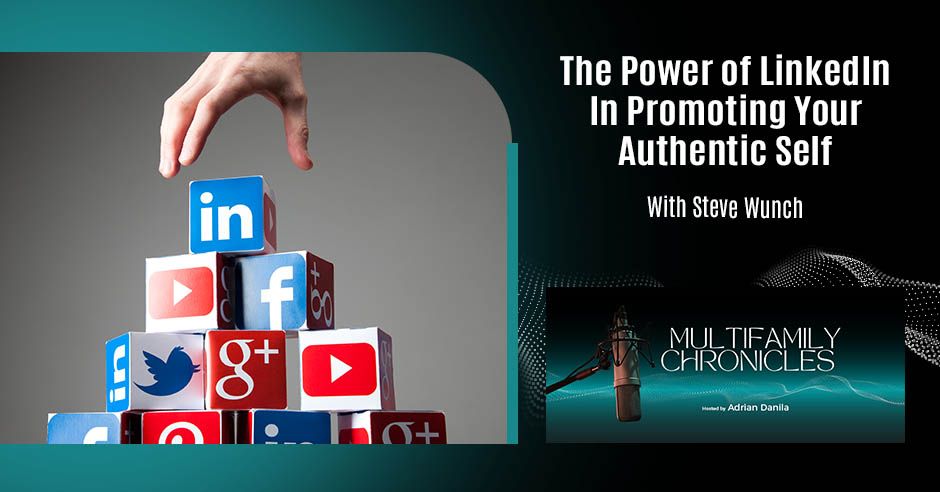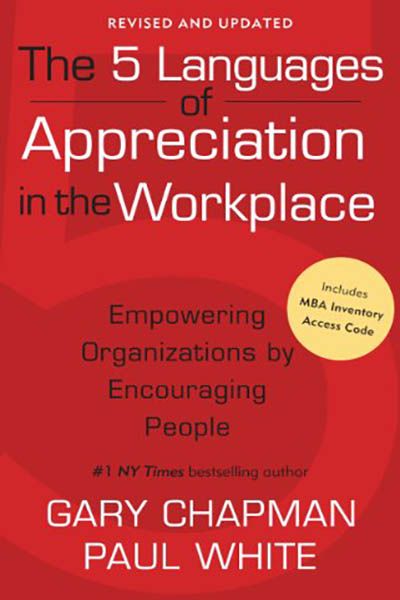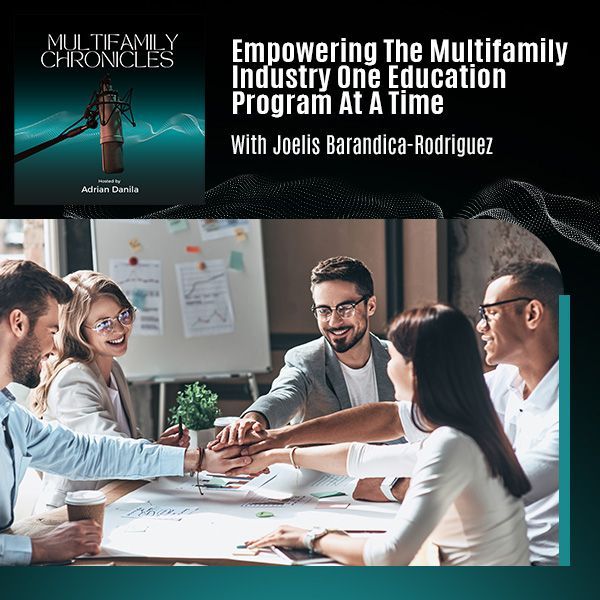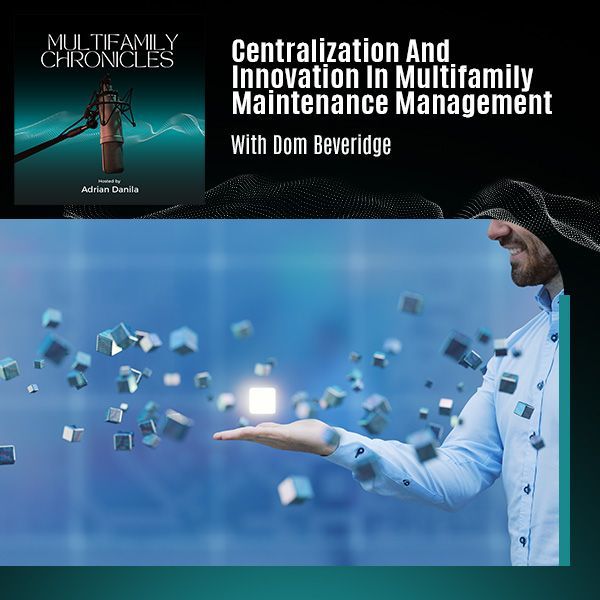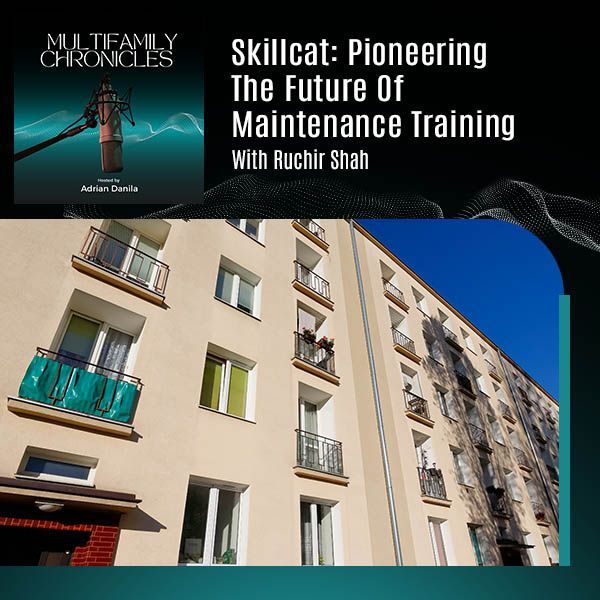The Power Of LinkedIn In Promoting Your Authentic Self With Steve Wunch
LinkedIn is a great platform you can use for hiring, promoting company culture, and winning new clients but you need to practice authenticity and transparency. People these days want to connect with people or companies who are real and personal. If you’re not any of those things, you are going to struggle, especially in today’s economy. Join Adrian Danila as he talks with the “industry ninja” and the Vice President of Marketing and Events at Leap Easy, Steve Wunch about the power of LinkedIn. Learn how to attract more customers, clients, and hires by being truly authentic. If you are a small time operator, you need to listen to this episode. Start growing your company through social platforms today!
---
Watch the episode here
Listen to the podcast here
The Power Of LinkedIn In Promoting Your Authentic Self With Steve Wunch
We have Steve Wunch. Steve, welcome to the show.
Thanks. It's been a long time in planning this, so I'm glad we finally got it to come together.
I'm excited to have you. Steve, you're the Vice President of Marketing and Events. You are also an Industry Ninja. That's your title.
My boss is clever in his naming decisions. I am VP of Marketing and Events for a company called Leap. For those in the multifamily audience reading, we cosign leases for folks who can't qualify on their own, whether they be a student or a foreign citizen who doesn't have established credit here in the US or somebody who's messed up their credit or got a divorce and their ex did. We can step in and become a third-party co-signer for folks.
We also have a security deposit replacement product that changes the typical out-of-pocket expense into a low monthly fee. That makes it easier for renters to afford to move. We're making a difference for landlords and renters both in what we do at Leap. Industry Ninja means I do stuff that I don't get paid for.
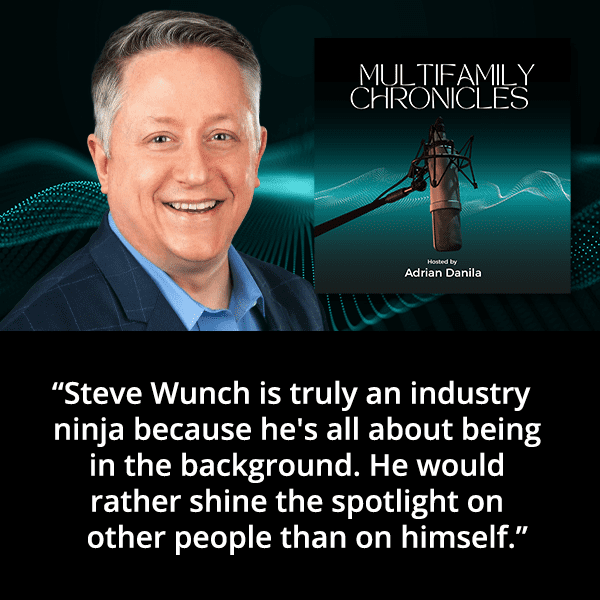
You're also invisible. Things happen and you are invisible. People don't even know that you did that. Part of the reason why I want to have you on a show is that you're the first ninja in an industry that I'm meeting and second of all, I want to make the stuff known to the public. Ninjas don't get that credit for working invisibly. Steve, to piggyback on your introduction, your product works like insurance. The residents are paying a certain fee and then, they're guaranteed a certain coverage.
The owner can determine the type of coverage that they want. If we're going to co-sign a lease for somebody in New York, a New York landlord might want to have twelve months’ worth of rent guaranteed. The fee would be higher for the tenant in that respect. Somebody in, Omaha, Nebraska, where it doesn't take long to evict someone may choose to only have, 2 or 3-months’ worth of rent coverage.
We are flexible and will customize the coverage based on what the needs are by property or by market, whatever the owner needs us to do. It is an insurance policy or insurance coverage that we offer at no cost to the owner-operator. The tenant, pays for all of our services upfront or monthly and we guarantee the rent. It's a win-win for everybody.
That's quite an interesting concept, Steve. How can landlords and operators get ahold of you?
It's easy if they go to www.LeapEasy.com/landlords, they'll be able to see all of our products. There are good descriptions there. They can send a contact to our sales team or they can reach me directly. Steve@LeapEasy.com is my email address. I'm also pretty active on social, especially LinkedIn and you can find me there as well send me a message and I'll be sure to connect you with the folks on our sales team that handle those new accounts and questions.
Steve, you've been around for a long time in the multifamily industry. Share your background with the audience, please.
I'll be 30 years in the multifamily space. I started leasing apartments in 1993 in Atlanta. I have worked for different operators all over the country. I've moved a lot for work. My mom thought I was in the witness protection program. I was moving so much, but I've worked in markets from Florida to New York, Boston, DC, Chicago, Texas, and California.
Colorado is where I'm at now. Multifamily is an industry that you don't necessarily aspire to join when you're young. I often ask when I speak, "How many people in the audience wanted to be a property manager when they grew up?" I don't get very many hands raised, but when I ask the question, "How many of you fell into property management?" that's where the hands go up.
That was what happened to me. I was singing on a cruise ship, came home from the cruise ship, and my roommate had skipped out. I went down to the office to talk to the manager. I didn't have a job. I didn't have a roommate and didn't know what I was going to do. Rent was going to be late, and she said, "You should lease apartments for us. You'd be great." That was the beginning of a long and well-loved career that I'm happy to be a part of.
That’s a great name in this industry. Everybody that I'm connected with knows of you and they don’t know you personally. I had the opportunity to meet you at a trade show in Atlanta. That was a great experience to get to meet you in person.
You, me, and Tara Samuels were there as well.
That was such a trade show. Steve, tell us about your role as a Vice President at Leap Easy. What do you do in the role of Vice President of Marketing?
I came aboard with my company Leap in April 12th, 2021 in a sales role. Ultimately, I didn't want to stay in a sales role because my skillsets are better used in other verticals like marketing and training. I've been primarily focusing on raising awareness through social media platforms about Leap and our products and our customers. I was doing a lot of internal marketing as well for clients creating collateral things for those partners that we partner with already and making sure that they have the latest and greatest collateral to share with their customers.
We rely on the property teams to share about Leap and our product with those folks who come to apply for an apartment. Maybe they don't qualify and a leasing consultant can say, "Here's a program called Leap and if you can get qualified with Leap, then we can continue with your application and get you moved in."
We provide them with collateral but a lot of social media real prominent working on I'm on LinkedIn, and it's my CRM most of the day. I follow companies that we're interested in winning business with and companies that we partner with and I comment on their posts. I share information industry specific through that platform. I also share things that are happening at Leap as well, new products, new employees, and those types of things.
I also coordinate events. In addition to the marketing piece, I take care of all the conferences that we attend, make sure that the booths get sent to the right place and returned to the right place, and get swag shipped out so that we've got some good stuff to give to folks when they do come by the booth to visit us at those trade shows. That keeps me busy most of the time.
Steve, you're also a speaker and professional facilitator in leadership. I want to ask you a question. This is a personal curiosity of mine. Are we leaving a leadership crisis in society in general? A follow-up question to that is how do we as an industry fair against society in general? Are we doing better from a leadership perspective or we're having some catching up to do with society in general?
It's a blanket answer to both questions. There's always room for improvement when it comes to leadership. I don't want to get political or anything on this show. Whatever culture you want to create, whether it's in a country, a company, a church, or a school, that culture is created and is tended to by the folks that are in positions of leadership. When I entertain a potential new client who I might consult with or speak for, I always want to know about the culture and what their vision and mission statement are because that tells me a lot about the company and the direction that they're headed.
If they've got core values, that's important as well. You'd be surprised how many companies can't articulate what their vision and mission are. They don't necessarily have core values in place. They think they do, but they haven't made the real core values need to be a living, breathing member of the team.
Core values need to be a living and breathing member of the team.
In a lot of respects across the board, companies and industries could use some finessing of those skills and work on honing, and speaking their leadership language more clearly to people. There are a lot of multifamily companies that have done a great job of executing those core values. Equity Residential is one that I worked for about seven years. They've got a vision and a mission that aligns with their strategy.
Sometimes it changes from year to year, but it's clear. They've also got ten core values that help team members understand how they should act as a member of the team at equity, and it helps them to do their job more effectively. The broad answer is there's room for improvement, but there should always be room for improvement because leadership should always be evolving, growing, and changing in an organization, a country, a church, or whatever.
I'm glad you're mentioning evolving because we as human beings, tend to believe if we're in a good situation, we got to hold onto it and that better not change for us without looking outside that the reality is different. Everything changes all the time. It's that thing that you don't step in the same river twice. Everything evolves. Even from a physical perspective we evolve, we change all the time. We're not the same person that we were five minutes ago.
Even if you step in that river, you've changed the river because now your step has caused the river to flow in a different direction. I don't think people realize the decisions that you make daily in how you operate your company, how you lead your folks, or how you execute your job. If you're a leasing consultant or a service tech on the property, that can change the course of direction for your success, your failure, or your growth.
It's a great point, and it also says a lot about the power that you have as an individual to change course.
No matter what role you play on a team. If our main audience is multifamily peeps, I don't care if you're a groundskeeper, a housekeeper, a maintenance tech, a maintenance supervisor, a leasing consultant, an assistant manager, a property manager, a general manager, a regional manager, president, or CEO. What you do every day has the potential to change the course of direction for your success, your team's success, and ultimately, the direction that your company goes.
I will adhere, and not necessarily argue, but I will say even if you don't do anything, you’re still affecting change by being passive. Things will happen whether you take action or not.
That’s the decision that you've made.
It still affects what's happening even when you choose not to do anything about a particular situation.
Agreed, 100%. I talk about a growth mindset and folks are in that fixed mindset because what we do here works. If it's not broken, let's not fix it. The world is changing rapidly around us. The last couple of years has been a good example of how the world change can impact what we need to change as well. multifamily partner was pulled through that technology, not the hole in the fence that we've been looking through. Maybe we'll get there someday. All of a sudden, we got yanked through that because of COVID. You either change or die. I believe that 100%. You're speaking my language.

It's so true. I love that you're bringing up the growth mindset. I'm looking at the static approach versus the dynamic approach. Static is, " I want to be where I'm at. This is where it feels great." The reality is, that's limited. No matter how much you want to hold onto what you have, you're not going to hold onto it forever. It's more of an illusion. It's more in your head.
It's better to adapt and overcome situations versus trying to stay in the same place where you at from a mental perspective too. Everything starts with a mental, and then the physical stuff around you follows. Keep being in the same mindset and expect that things won't change. As you said, you don't evolve, you die.
The definition of insanity is to do the same thing the same way and expect a different result. You're crazy. A real some random trivial information for you here. I play a game on my phone quite a bit Harry Potter" Puzzles & Spells, and I try the same puzzles over and I don't get them done. I've been doing the same thing.
If I change what I do on the puzzle, I can solve it and get through the game. It's the same thing. If you're up against a struggle and you're trying to go at it the same way all the time and you're in that non-growth mindset or that fixed state, you're never going to be able to get through that hurdle or get over that hurdle.
You step outside of what you're comfortable with and try something different. Coming to Leap, I hadn't been in a sales role before. I was a multifamily training and support specialist for 25 years, but I put myself in a position where I could try something new, and it's opened up opportunities for me that I would've missed otherwise had I stayed in that place that comfortable and safe.
For those of you that follow you on social media, especially LinkedIn, you're a cheerleader for others. For everybody else, you are always the first to congratulate them on a new job, or a promotion and also share their success with the world. I want to ask you what drives you to do that. What drives you in general? What's your drive? Where is your drive coming from?
I wish I could acknowledge everyone's successes. LinkedIn is a tough platform to navigate because you only see what your filters will show you, whether it's the top posts or the most recent posts. I spend more time there than I should. I do want to see people succeed. Having been in a training and support role for most of my professional career, I'm all about being in the background.
The trainers at companies don't get a lot of kudos and spotlight because they're constantly shining the spotlight on other people. My motivation is to be able to shine the spotlight on folks. It's part of my DNA to be a supporter, a proponent, that cheerleader that's out there rooting people on because the world is a tough place and we've seen that more in the last few years than we have ever before. I appreciate all the hard work that the folks that work on sites do. I've been in their shoes, sat in their seats, and done their jobs. I know what it's like to have a hard customer that you're working with or get yelled at by somebody for something that's happened at the property and how you feel.
When somebody can come behind you and be like, "You're doing a great job. Keep going. Don't give up," they may appreciate that. I hope they do. I sure get joy out of being able to share other people's successes and journeys. That's what motivates me to get out of bed every day to shine the light on the good things that are happening in the world that hopefully will overshadow and shine out the bad stuff that's happening.
Shine the light on the good things that are happening in the world so that it can hopefully overshadow the bad things.
You're doing a great job at it.
Thanks. If only that could be my full-time job, that would be awesome. Got a lot of other stuff to do.
Steve, LinkedIn came up in our conversation a couple of times already, and I want to get your take on the platform then I want to ask you to share your personal experience about the power of this platform and how can it be used to help you build your brand?
It is the golden fleece or the holy grail of personal brand and strategy in that respect, from my perspective. I have been on LinkedIn for a long time since the early 2000s or even a little bit before. I didn't realize how predominant my presence was until I was at NAA years ago. A person that was at the conference walked by me, Melanie. She's from Gables, and she said, "I wanted you to know how strong your brand is and how much I appreciate what you put out there."
I had never had anybody say that to me before, and it was an a-ha moment in terms of understanding people. People are paying attention to what you're putting out there. No matter how small you might feel, your reach is so great on LinkedIn. I posted it was Optec a couple of years ago. I'd taken a picture with Sharon Woodring. She was at CFLane at that point and a couple of other folks were at other companies.
When I tag them, all of a sudden, I see my post has been viewed by 13,000 people and that's because I tag those other people. That's a strategic move to make and that's why LinkedIn sometimes will say, "You've got a lot of activity on this post, but if you'd mentioned someone, you might get more return on investment." I want to leverage those relationships that I've built in the physical world as well as the virtual world.
There are a lot of people that I've known on LinkedIn for years that I've never met in person. A few of them have been lucky enough, like you, we made a connection on LinkedIn virtually for a couple of years before we were lucky enough to meet up in person at the Atlanta Trade show. That happens all the time.
Be authentic. Be consistent. I'm authentic and transparent about whatever's happening in the world, my life, or my work. I believe there's a lot of value in authenticity and people resonate with folks that are real and personable. Also, supporting other people and being a proponent of that. I cheer Mike Wilbur on all the time and he's a competitor to Leap in respects. They've got products that might compete with us in the future. I'm still a proponent of the folks that I know and work with and have admired for such a long time.
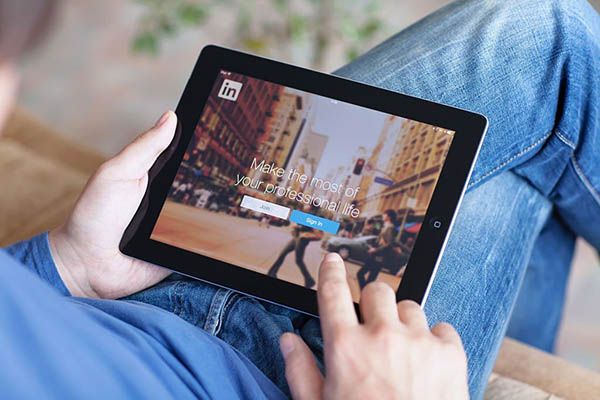
I've got two jobs from LinkedIn. I got a job at Knock through LinkedIn and I got a job at Leap through LinkedIn. That's the only place that I was connected with folks that were hiring at those two companies. It was a real win for me. There's a lot of power in that platform for sure. I could talk for another 30 minutes about all the different things that I can see and do there.
Take all the time that you need because I won't generalize, but not everybody understands the power of this network, the real power, and the engine behind it. This is something huge. My personal experiences are similar to yours. I got my current job and my previous job from being LinkedIn, and from being connected with individuals that were at the company. They weren't even hiring managers. They saw me on LinkedIn. They thought that there was an opportunity with their company, and they went out of their way to introduce me to a hiring manager that I spoke with, and I secured the job.
It goes such a long way. Your experience with running into folks that you never met and they're telling you, "You are all over LinkedIn. I'm reading your post." You don't realize it because they're individuals that you never interacted with on a platform. I have individuals that introduced themselves to me. I couldn't tell them by name. They never like or comment on my posts. In the thousands of views that I'm getting, I don't know. There are a lot of consumers of the content that way that is out there consuming the content. They're not comfortable, or they don't care about interacting, but they do read your content. That's very powerful to be known that way.
My boss at Leap, Adam Meshekow, and I were not connected. On LinkedIn, he had seen me speak at the Denver AAMD TechCon in 2020, which I believe was one of the last in-person events that we did here before COVID. When I got let go from Knock, I got on LinkedIn. Even while I was finishing off my conversation with HR on one laptop, I was on my personal laptop changing my LinkedIn frame to open to work and minutes later, Adam pings me and says, "I'd like to talk to you. I've seen you speak. There might be a role for you here at our company."
I've now been here since 2021 and loving it. I'm loving what I'm doing, and thinking we're making a difference. That all came from him paying attention to what I was putting out there. He wasn't necessarily a 1st or 2nd-level connection even at that point, but he'd see me speak, he started paying attention to what I was posting and the rest is history.
I encourage folks that if you're a small operator and you don't have the budget for a recruiter, the best place to recruit people is on LinkedIn. Watch their posts. Look for people in your geography. If you've got competitors in your market, start following those companies and the people who are working at those companies and what they're posting. You can poach some great talent out there based on what you can find on LinkedIn.
If you're a small operator and don't really have the budget for a recruiter, go to LinkedIn. You'll be surprised at what you can find there.
The person that I most admire is not only from a recruiting perspective but also from creating a great company culture and brand identity on LinkedIn. It's Jennifer Staciokas at Western Wealth. She and Jen Piccotti who I love from Swift Bunny, did a session at the multifamily social media summit in Napa and talked about how they've leveraged LinkedIn to promote their company culture to share that they're getting stuff done. That's one of their catchphrases at Western Wealth. Swift Bunny had the data to back it up. It's a proven platform, not only for engagement from a professional perspective to promote your company.
I remember at Knock when I was trying to win the business of one particular client, I believe in intentional marketing. Don't pitch, slap me after you request my connection on LinkedIn. A lot of vendors are prone to connecting with you on LinkedIn and then the first message you get is, "Can we put some time on your calendar? I don't even know what you do, but I want to waste your time." This company was intentional about what they were posting on LinkedIn and I was following them because I wanted to win their business.
Notice I was following them. I wasn't messaging. I was commenting, "This is amazing. I love your leadership style." Leslie Price is the President of MC Companies. That was the company that I followed, and she posted something intentional and thoughtful during COVID, thanking her team for the work that they were doing.
I said, "You're a boss I'd like to work for because of how you're treating your team, and I appreciate what you've done." That ultimately ended up being able to win their business at Knock. That's a good example. There are many ways you can leverage that platform from hiring to recruiting to promoting company culture to winning new clients in business by how you show up every day on that platform.
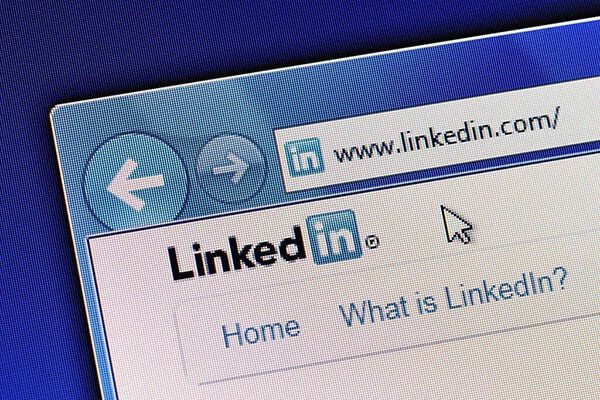
To your earlier comment, you may not know it, but people are watching. I pay for an upgraded subscription so that I can see some of the analytics. If I get a large post, and a lot of people viewing a post, I'll dig in and they'll show me what companies and what positions in the companies are looking at my stuff, what geographies, and what states are they in.
That is helpful too, for an operator, a business owner, a sales rep, or an SDR trying to drive new traffic to the sales team. You can get a lot of great insights from LinkedIn and they've got a great learning platform. A lot of training professionals that I know of are now leveraging LinkedIn learning. As part of their strategy for training their teams at their properties. They'll have a leadership class that we wouldn't have content for at our company. I can enroll my peeps in some training on LinkedIn and it's amazing what you can do on the platform. I have not been paid by LinkedIn to tell you how awesome it is.
I haven't been paid by LinkedIn either and I'm as a big fan as you are. I see the results. I'm not selling anything currently to my connections, but there's no price to put on the level of interaction and the relationships that you build on a platform. In real life in all reality, you would never be able to create many meaningful relationships.
I never thought this would be even possible. If someone would've told me years ago, "You are going to make friends on the internet. You got to be close to the exchange, behind the scene information," I will say, "You're crazy. Do you realize what you're saying?" This is exactly what's happening to me. I have individuals that I never met in person. I'm hoping to in a near future, but then we became friends. I'm not using this word lightly like we're close behind the scenes.
It's not something that my connections are seeing on my post-behind-the-scenes direct messaging between me and those individuals. They're meaningful conversations and exchanges. It's all to make each other better, exchanging this type of information and what we can do to better serve and help our connections on a platform. It's amazing from a professional standpoint. There's no other platform to my knowledge that comes even close to the impact that LinkedIn has.
People should look into investing. I won't say spending. When you spend, people think, "I wasted the time. I spend all this time." Invest time on LinkedIn. You will educate yourself a lot. It doesn't have to be LinkedIn learning, but you learn a lot about human behavior, relationships, and what's working. You mentioned the sales approach.
You also mentioned recruiting, and I want to take your get your take on it. I'm a big proponent and believer in the fact that recruiting should be approached as sales. When you're advertising a job, an open position, or an opportunity, you are trying to sell a product to your potential audience. Do you agree or disagree?
I agree. Where recruiter’s misstep a lot is they sell the job. "Here is the job description, and here are the benefits." They don't take the time to sell the culture the camaraderie, or the collaboration that happens within the organization and how awesome they treat their teammates. There are benefits outside of salary, medical vision, and dental that people are looking for. I look at the total compensation as what company is it to work for and LinkedIn can be a place that you can leverage.
A lot of recruiters make the mistake of overselling the job instead of selling the culture.
I know that Western Wealth does this well. Leveraging, letting people know what company it is to work for and not just, "Here's the job. Are you interested? Here's the salary." A lot of people want to know the salary, but there's way more to what people are looking for, and LinkedIn is a great place to create that platform for sure.
There's also the fact that most recruiters showing in my field are using some pre-made cookie cutter type of ads with a bit of information about a job. They're not getting creative. They don't take a few minutes to think, "What's so special about a job and what makes this position special by comparison with the 50 others that are flooding my potential candidate feed?"
"How am I differentiating myself, my company, and this particular position from the other 50 that are showing in my feed?" They're missing a little bit of authenticity, a little bit of being different. Stop using the same camera, changing the position, and change a couple of words. I'm seeing the same ads. I end up not paying attention. I scroll right past.
There is something to be said for brand standards and being true to your brand. Some of those templates that are created out there have been designed to keep messaging consistent and brand standards in place. I'd like to see people leveraging. Some of the posts that I've gotten the best responses from have been some of the video posts that I've done. Back when I was at Knock, Jordan Greek and I used to always do these little video posts and I got away from that. I need to get back to it. That is an opportunity for people to not only read your words but to also see who you are as a person and hear what you're passionate about.
What better platform for a recruiter than to share a video instead of a post about a job saying, "I've got a great job in Philadelphia. It's a great city. It's a city of brotherly love. That's a lot about what our company stands for. We support one another and create a collaborative environment here at my company. Here's the job role. If you'd be interested, I'd love to connect with you. Click below and let me know if you're interested or send me a message."
It's easy to be different, and that's what a lot of people are looking for. You used the word authenticity a couple of times there too. It doesn't have to be perfect. I did a video for Florida Department Association and I went to say www.LeapEasy.com or www.FAAConference.com. I messed it up but I left it in because people like to see your humanness. It doesn't have to be perfect. It has to be real.
People are being turned away from the perfect sanitized content, the content that's overly edited. As you said, I understand the brand situation that you have to keep it brand consistent, when it gets to a point that it all looks like plastic, it's nothing. There's no soul in it. They look great, but they're plastic products. You can't show on plastic. It doesn't give you any type of feeling. It just passes by.
A good argument for being creative and being out of the box is that TV channels and audiences are dropping for many years while YouTube viewership is through the roof. I'm not talking about the younger generation. Even older generation people prefer to watch unedited raw content versus sanitized plastic-like TV shows. It's the reality.
One of the big topics of conversation at the social media summit was user-generated content. People watching leasing teams, pounding around in the office, high-fiving one another, jumping into the pool and being crazy, and having a good time at work, resonates with folks. To your point, it's not just Gen Z. All generations that are interested in making real connections with real people or real companies and getting that raw, unadulterated, authentic perspective on who they are and what they stand for.

I agree and I want to make a bit of a segue and ask you the next question related to what we discussed. You said user-generator content. Typically, you would like to have people that want to post. If you make it a job description and say, "You must post authentic videos twice a day," most people will not because it's not who they are.
The next thing that you want to do is to look for people that this is a part of who they are. They're excited about putting a video with themselves, doing something silly at work. You hire them that way. The question that comes from that, taking it one level up from user-generated content. Do you see a benefit in companies hiring industry influencers?
We talk about this quite a bit at Leap because one of our biggest markets is the student housing market and students are on Instagram. I heard Kim Kardashian has 335 million followers. She's an influencer. It depends on what you want to achieve because not everyone is motivated by someone of influence on those platforms. If your demographic is like ours, the student demographic, they do pay attention to people who post on Instagram and what they share.
We've done a couple of campaigns where we've leveraged what we would call influencers, people who have a benchmark specific number of a minimum number of followers in the markets that we're interested in working in or working with. We've seen some benefits, but you have to know your audience. That's the most important thing. A lot of times, there's been more personal stuff that's started to appear on LinkedIn which is great because then you're getting to know the person.
One of the best people I know in the business especially in multifamily is Tony Sousa at RPM. He posts leadership stuff. He posts pictures of his kids coming off the field at a game that they lost with a pout on their faces and talks about, how as a parent, "I help him through that moment." It's not a loss. It's a win if you learn from what you didn't do right during the game and you change your strategy next time.
He's one of the best in our multifamily that does that well. You have to know your audience. That's the most important part of whatever platform you're looking at, whether it's Instagram, Twitter, LinkedIn, or whatever it might be. Who's your target audience? What matters to them? You mentioned a lot of the companies in multifamily require that the leasing team post a certain number of posts every day and they'll post recipes or they'll post a recipe at a property that's downtown where most people don't cook because they eat out and socialize all the time. A recipe doesn't resonate with who the resident is.
Again, you have to understand your audience and be intentional about the messaging that you pick. You'll hear marketing people talk about personas, and you need to know who the personas are that you're targeting. If you're targeting residents at a property, who are they? What do they like to do for fun? What's important to them?

Social, environmental, governance, and SEG are important. You have to spend some time doing your homework. Don't start putting stuff out there to be compliant. I would much rather you be committed and spend a few hours doing your homework upfront and posting stuff that matters to who's watching versus being compliant and checking the box. "I posted three things, I'm done," and you don't get a return for the work that you've put out there.
It's enlightening. Don't go through the motions. You are better off if you're not doing anything there. There are situations where doing nothing is the best thing for you. If you don't have anything to say meaningful to the audience, or the one that you are trying to reach, it's better to not say anything. You probably do more harm than good.
I would agree 100%. The best word I can say is intention. You have to have the right intention and know your audience. If you get those two things aligned, you'll be surprised at the results that you'll get. If you don't take the time to get those two things aligned, you'll be disappointed in how much time you've wasted.
Steve, I have a few rapid-fire questions. Ready?
I'll have rapid answers. I'll be concise. I promised.
You could take as much time as you have, based on your availability in general on time. Rapid-fire doesn't necessarily mean that I expect a quick answer or a very short answer. Books, what are your favorite books? Fiction, nonfiction, and professional books.
The 5 Languages of Appreciation in the Workplace is one of my favorites. I read Miss Peregrine’s Home for Peculiar Children. The whole series is a lot of fun for fiction. I'm a big Harry Potter fan and I'm also a big Brené Brown fan. I've got a few of her books on a shelf to read. Dare to Lead is one that I'm getting ready to jump into.
On LinkedIn, oddly enough, I saw some folks talking smack about a book called Influence: The Psychology of Persuasion by Robert Cialdini. Zach from Rentgrata made mention of it. Mike Wilbur might have made mention of it. That's the book that I'm reading virtually on planes trains and automobiles when I'm driving.
How did a failure or apparent failure set you up for future success?
As a trainer, you should always have a destination in mind. Here's where we are and here's where we need to get to, and I need to make sure that my conversations and activities during class time lead in that direction. I thought I was going to be smart at equity one time, and I went in with the idea that we were going to have an open agenda.
As a trainer, you should always have a destination in mind. You need to know where everyone's at and where they need to get to.
It was terrible. The regional manager in the area got wind of it. I even had people in the class say, "This is terrible. You're bringing me down. I'm going to leave." Through that failure, I was able to build a strong rapport and relationship with that particular regional manager. She had struggled with engagement in her region, which is part of the reason I was down there trying to make this class work.
It ended up working out well because we became great partners. I admitted my failure and asked for forgiveness and said, "I've learned from that mistake. Let's not go there again. What can we do now to repair the damage that was done?" It turned out to be a win in the end because she was able to raise her engagement scores. She began to listen to her people more than she did in the past, and that was a great learning experience for both of us.
This is wonderful advice. Mistakes are nothing but learning opportunities.
Failure is on is not the end of the story unless you let it be.
Steve, what advice would you give to a young person ready to enter the workforce, ready to enter the real world?
Don’t think about what you want five years from now. Think about what you want right now. What's going to be good for you? Whether you're just coming out of school, this is your first job, what do you want to see happen now or in the next year? I remember job interviews, "Where do you see yourself in five years?"
That's such a stupid question to ask because so many things can in the next five years. I might not even want to be in the same job or same field, or same vertical, whatever. Know what you want for the next year and try to achieve that. Look for companies, look for jobs that are going to appeal to who you are, what matters to you, what aligns with your values and your brand, and who you are.
Once you find that company, work hard. Ask for opportunities. Don't be quiet if you're bored. Don't get by. Get busy. Find opportunities to grow your skills. Stretch yourself. I put myself out there. I'm old now. I'm still putting myself in positions that I'm not comfortable with because by being uncomfortable, I have to learn to do things differently and new. You always want to challenge yourself. There's my long-brought-out answer.
There's no growth coming out of a comfort zone. You have to make yourself uncomfortable.
Also, don't listen to impostors. I have impostors in my head all the time, "You're not a marketing professional. You don't have a Marketing degree. You don't know anything about marketing." That can debilitate you or paralyze you because if you start to listen to those voices in your head, instead say, "I'll be the first to admit, I don't know marketing, and that's my job here."

My boss will tell me about something that's a marketing phrase or a marketing technique. I'll be like, "I have no idea what that is. Can you tell me?" Instead of sitting back like, "I don't know what that is." I internalize it all and I try to figure it out myself. I'm shooting myself in my foot, but I put myself out there to say, "You got to remember. I don't have a marketing background. Help me understand what that is and how can I make it happen." Don't be quiet. Don't listen to the voices in your head and challenge yourself.
Steve, in the last few years, what belief, behavior, or habit has most improved your life?
I would have to say balance. I left operations, and I might get a little emotional here, to take care of my mom. I needed balance in my life. Working on the supplier partner side, I was able to work from home. I was able to take care of her during the day as well as my job until it she became more than I could manage. Unfortunately, we lost her on the 30th of August, 2022 to dementia. Balance is important, not just for me and in those circumstances.
I had to find a place and this is an example of how everything happens for a reason. I left a job in operations and didn't have a plan. I was going to start my own company and then COVID put the kibosh on that. I got hired by Knock. I was able to work from home, loved the job, and loved the company. The culture was great and could still manage Mom. When Knock let me go and Leap hired me, I'm still home. I'm still able to manage that important part of my life while still being professional, able to put myself out there, and do the things that I love. For me, it would be balance. That's been my saving grace.
I'm truly sorry for your loss, Steve.
Thanks.
Thank you for sharing with the audience because it takes a lot. It's not an easy thing to tell your story but it's a wonderful thing for those of us watching this statement to see that we're humans. We go through this stuff and we never plan for it. We never sign up for it, but we step in when we need to and then we make adjustments for our loved ones, ourselves, and our health for whatever the reasons might be. We have to adapt and overcome.
We had to make significant adjustments. As you said, you didn't need to plan for it, but you had to do it because you got to take care of your mom. You learned that there's more to it than what you used to do. That's ultimately a wonderful thing. I switched from operation to the vendor partner side recently, back in December. Honestly, I never thought about it seriously until my current company reached out to me and it's been a great ride so far.
We even used to call it the dark side.
I call it the bright side. Keeping an open mind is a big deal. It was a learning personal experience and my personal story was a tough thing for me to keep an open mind. I knew what I knew. I didn't want to accept new stuff and it was a painful life for me until I realized that is not the way to go. If I wanted to grow, I wanted to become a better person, first of all. Thank you for sharing. That was powerful. Steve, when you feel that you lose focus or you feel overwhelmed, how do you get back on track?
I get away from my desk. I take a walk, I go outside, or I sometimes go in the living room and turn on the news or turn on the TV for a few minutes and clear my head and then I can get myself back into the right space to go back and hit it head on. For those of us that work from home, 4 or 5 days can go by easily. I haven't even looked outside. We had some step challenges at Leap to keep our team moving and active. There would be weeks during the challenge when one of my leaders would say, "You've only had 147 steps this week. Are you alive?"
You have to make a conscious decision to get up and move. That's a recommendation that I would make to everyone no matter what role they play. I remember at Echelon, Pam in HR would go for a walk every day. If anybody needs to get away from their desk, it's our poor HR people, dealing with employee issues all the time. She'd come by my desk and say, "Come on, let's go for a walk." We'd get outside and we wouldn't even talk about work. We'd talk about everything else but work and then, all of a sudden, you've got a breath of fresh air. You've got new energy. You're refocused. That would be my recommendation, for sure.
It's one of the things that I do. I get up at 4:00 or 4:30 in the morning and I walk.
I don't get up early. No way.
I walk for typically my goal is 75 minutes. Sometimes it's raining, it's cold, or it's hot. I stick to it and I make myself uncomfortable on purpose because if you start your day very uncomfortable, the rest of the day is going to feel like a piece of cake, the rest of the stuff that you deal with at work. That's my thing.
Sounds like the Eat the Frog principle. The thing you don't like to do the most, do it first like getting up early and going for a walk.
Steve, now that we're approaching the end of this conversation, I'd like to allow you to share something that you're passionate about. Something that you wish we would've discussed. We didn't have the opportunity to talk about it during our conversation.
I'm a firm believer that who's listening is supposed to listen. What was said was what was supposed to be said. I can't say that we've missed the mark or we haven't talked about what would be important because we're both here to share our knowledge and to encourage each other as well as those folks that are reading and who are part of your network. I'm not disappointed or I don't think we've missed the mark in any way. That would be my response to that one.
Steve, I truly appreciate you accepting the invitation. It's been a great conversation. I enjoyed the conversation. I hope the audience will as well. You did mention it at the beginning of the conversation, but then I want to give you another opportunity to share how can someone get ahold of you via email or a social platform or what type of contact info would you like to drop in here.
I'm on LinkedIn. Look for Steve Wunch on there. My picture is there. You can't miss me. I'm guilty as charged. You can email me at Steve@LeapEasy.com or my consulting email is SteveWunch@Outlook.com. I've got a website, SteveWunch.com. LeapEasy.com is my company's website. If you're interested in learning more about our no-cost solutions to drive profitability and make renting more accessible for your tenants, I'm easy to find.
Thank you again, Steve, for coming by. I truly appreciate you taking the time to be here with me. Everybody, thank you for reading.
Important Links
- Leap Easy
- Knock
- www.LeapEasy.com/landlords
- Steve@LeapEasy.com
- www.FAAConference.com
- The 5 Languages of Appreciation in the Workplace
- Miss Peregrine’s Home for Peculiar Children
- Dare to Lead
- Influence: The Psychology of Persuasion - Amazon
- Steve Wunch - LinkedIn
- SteveWunch@Outlook.com
- SteveWunch.com


